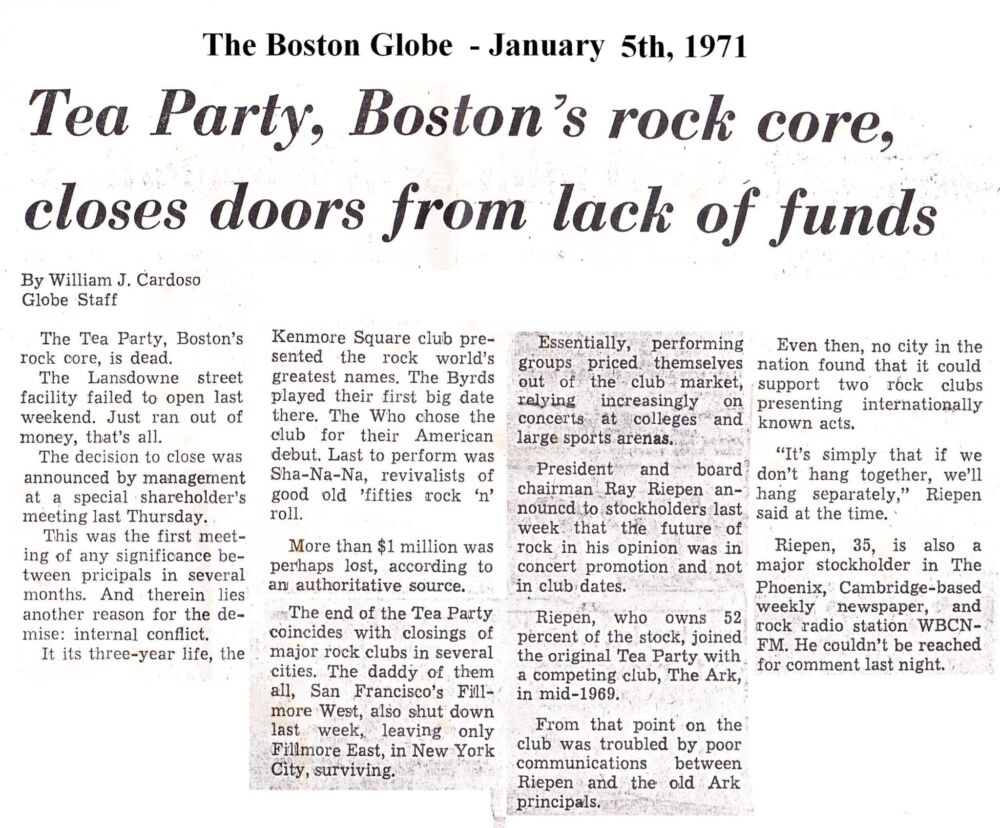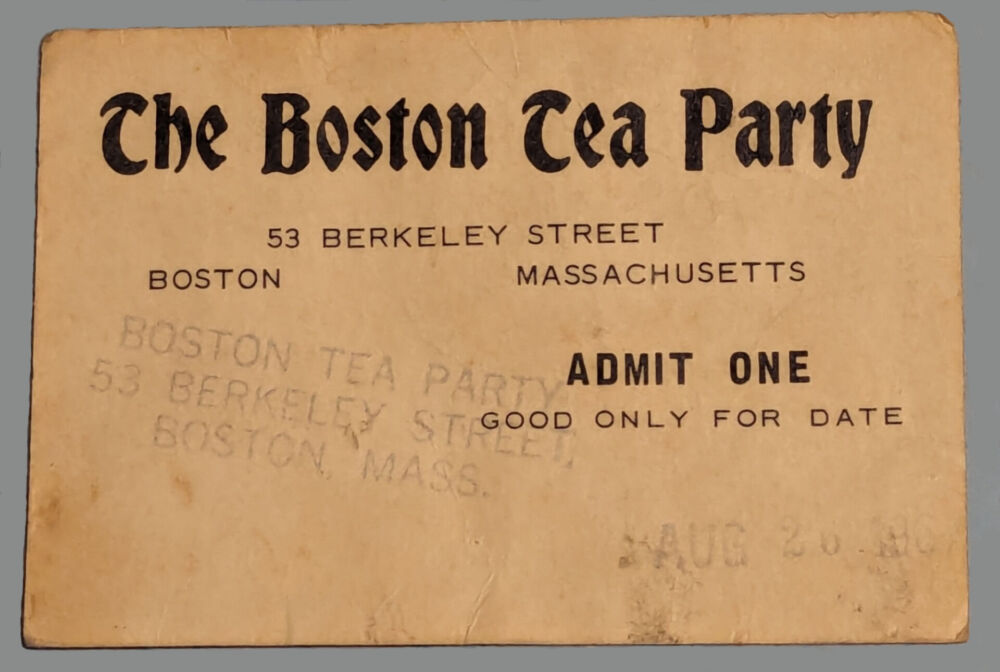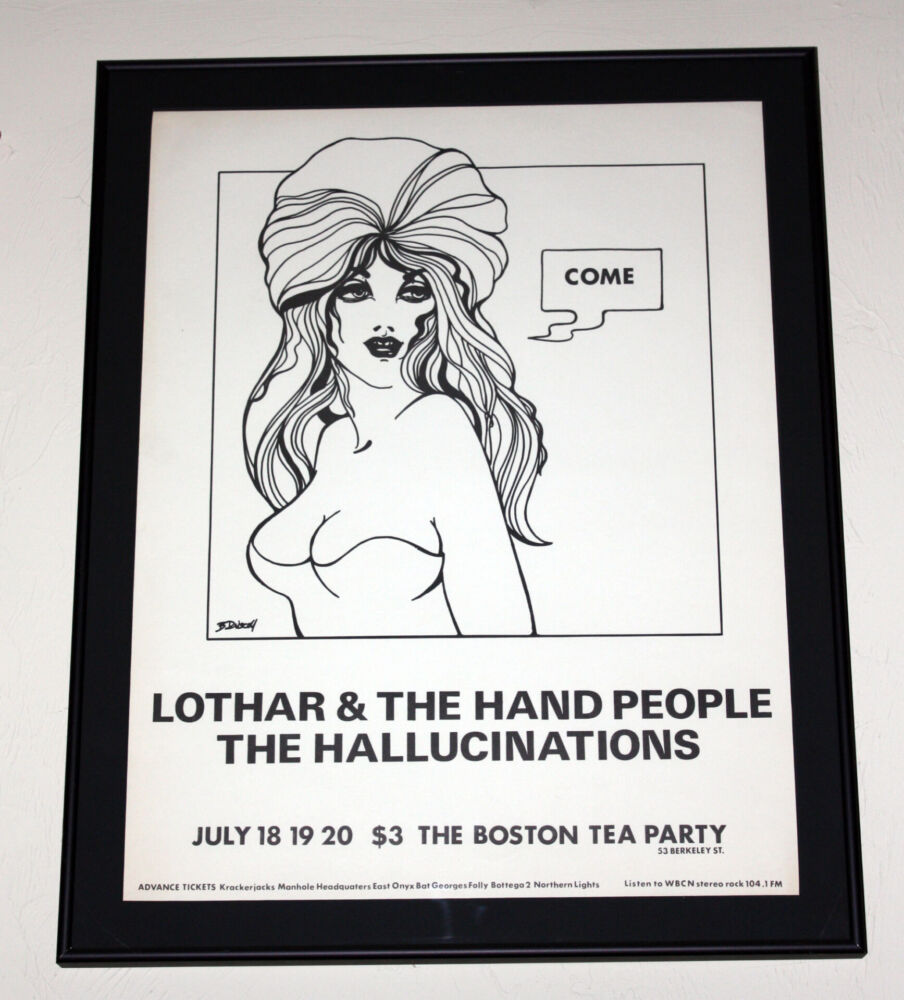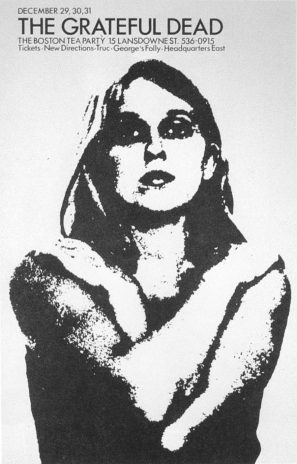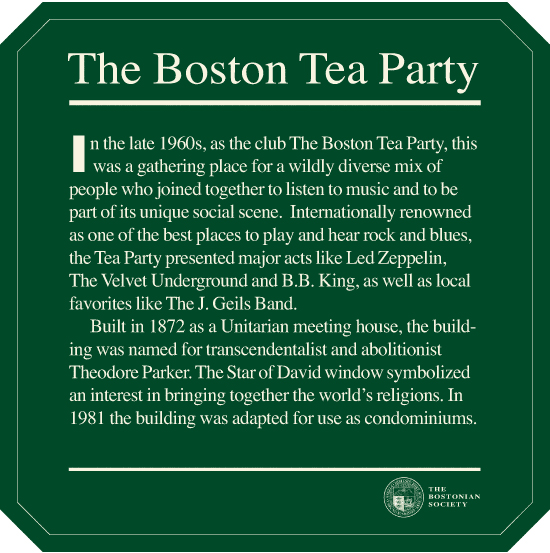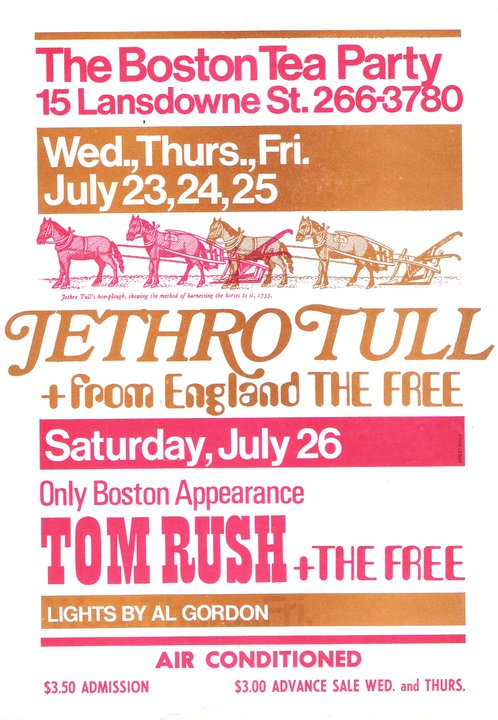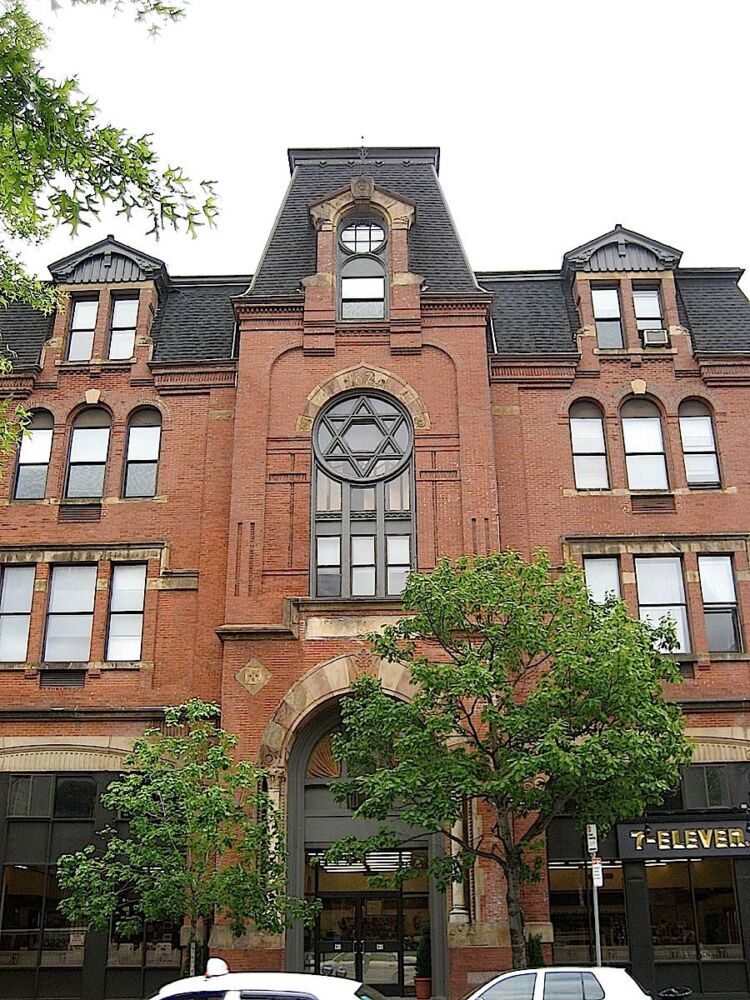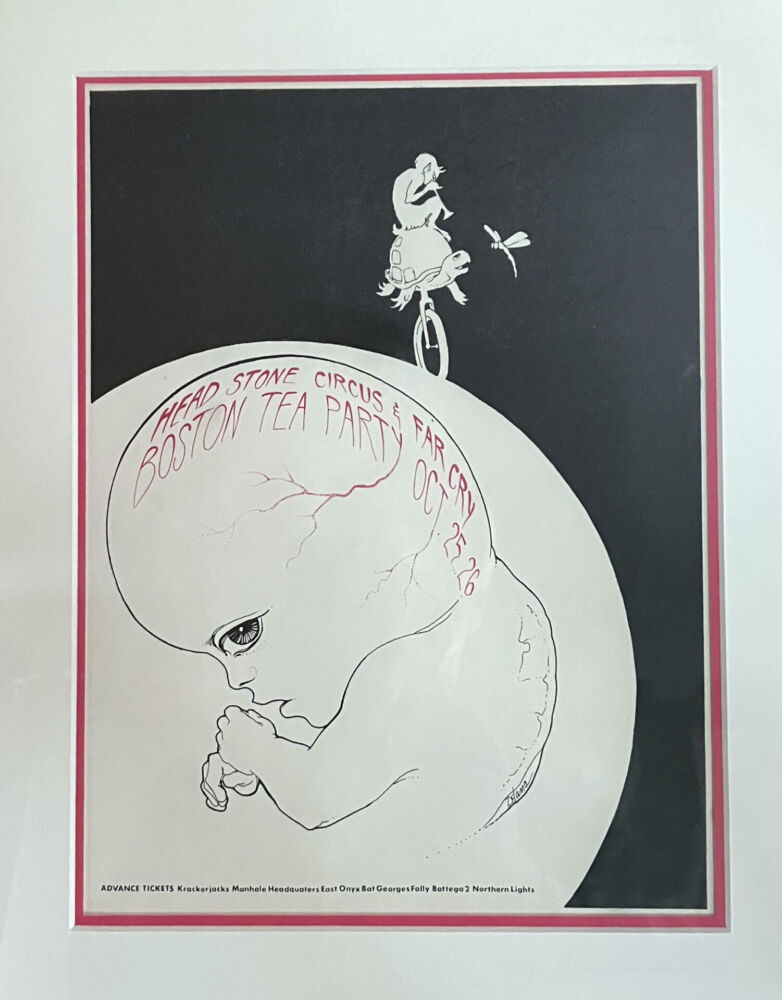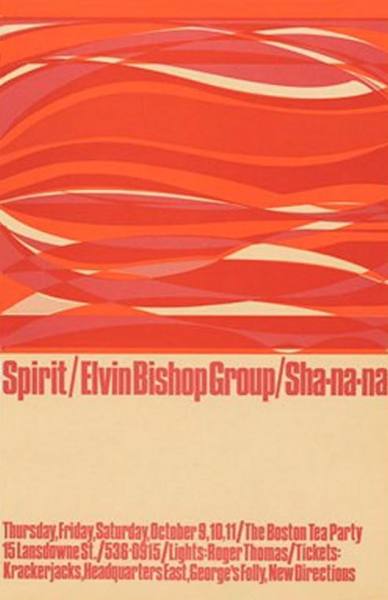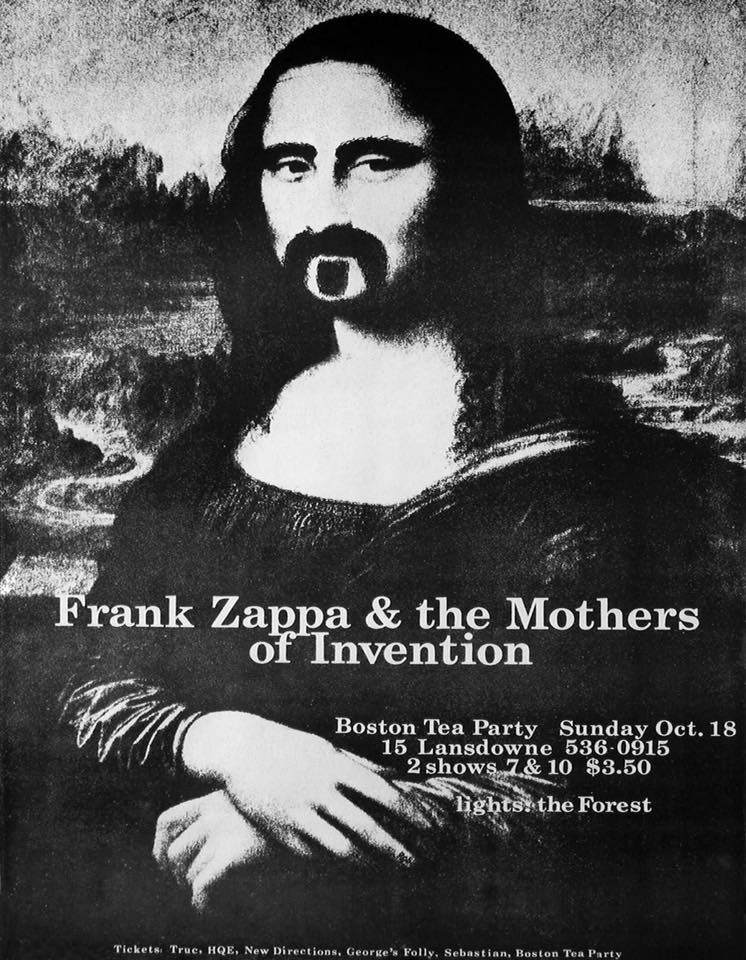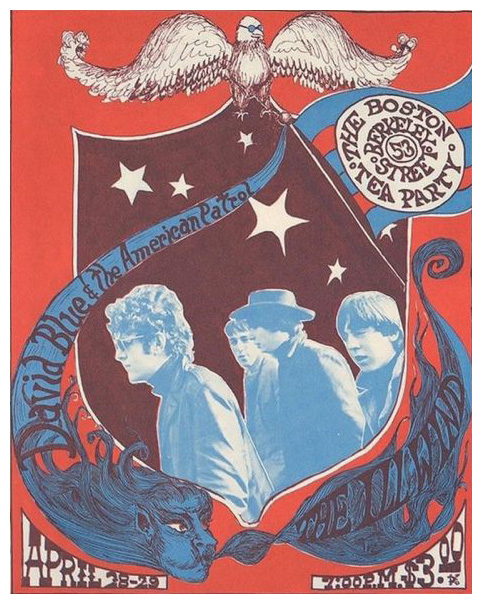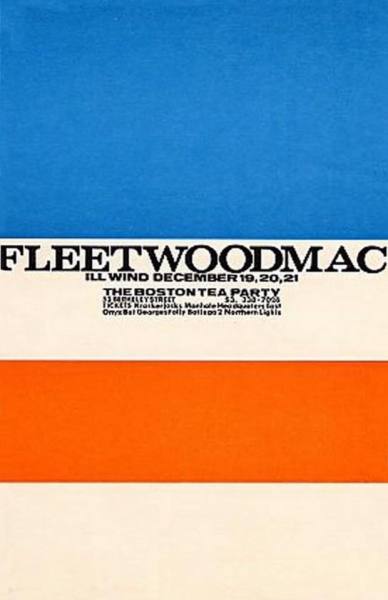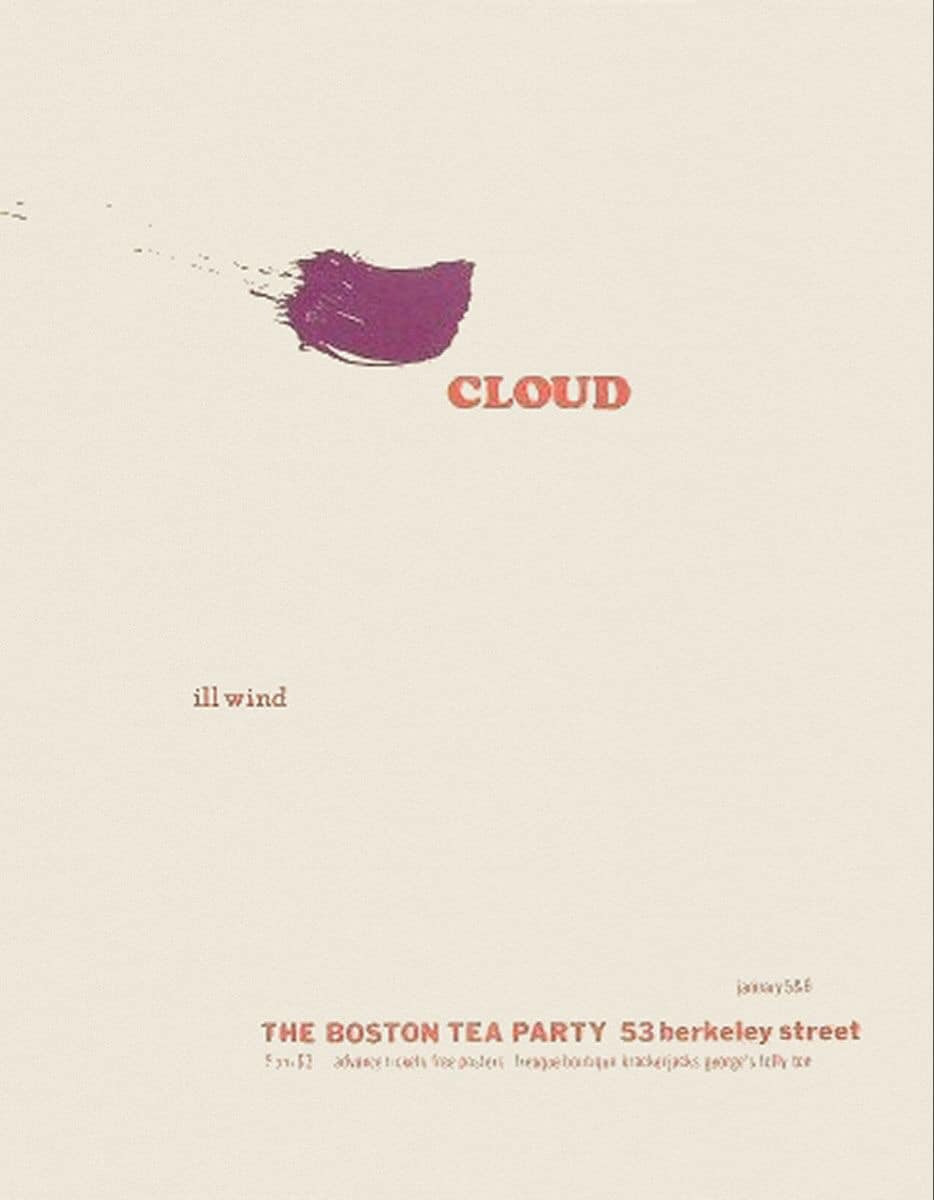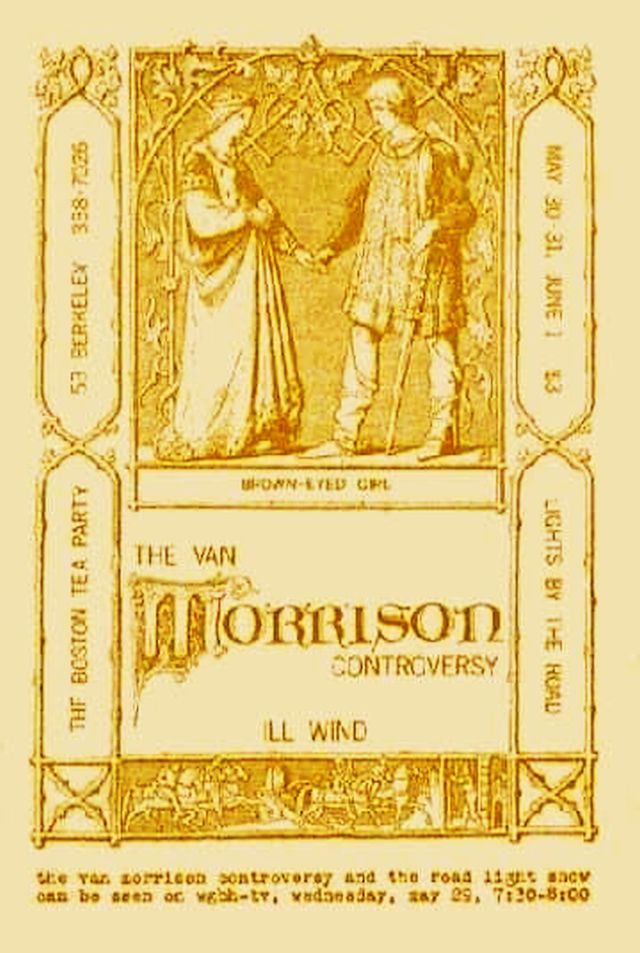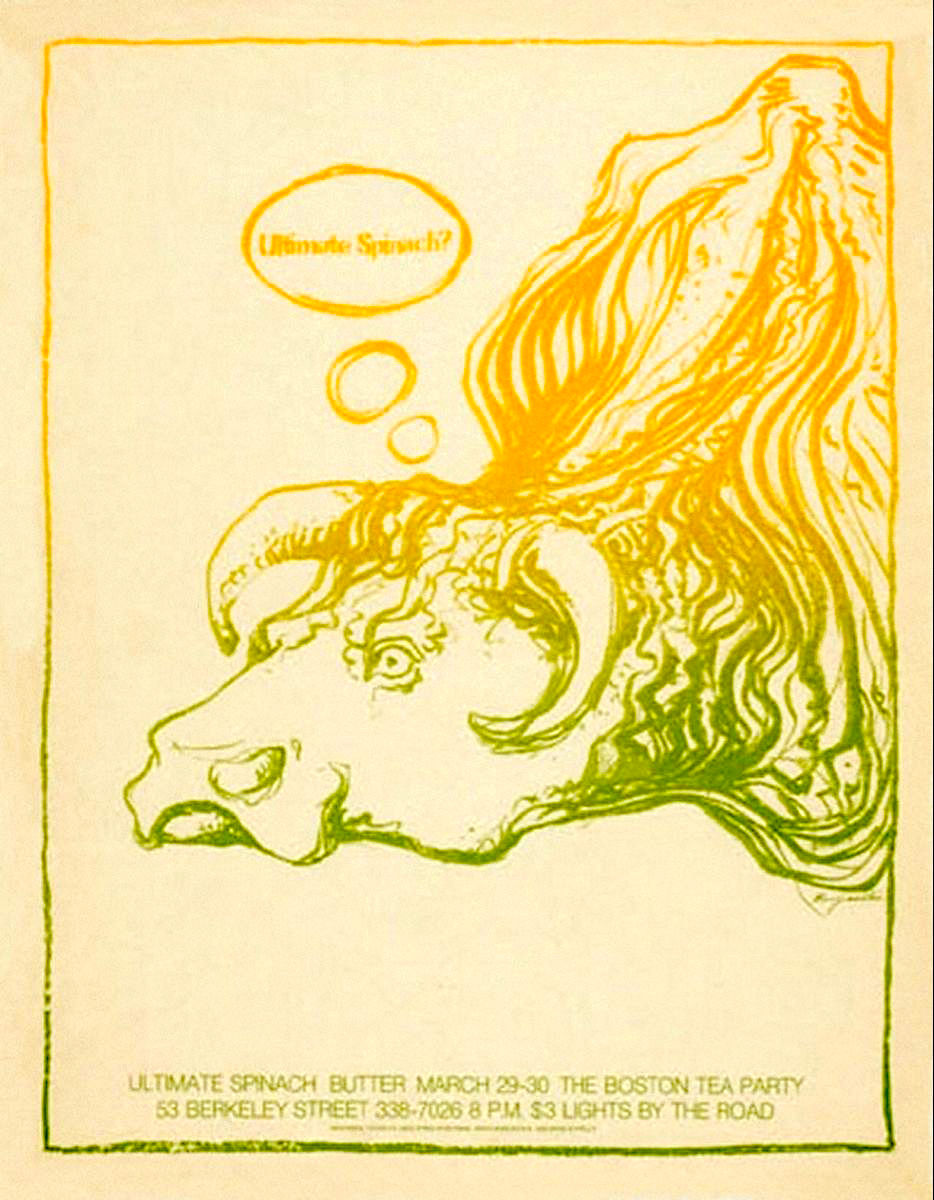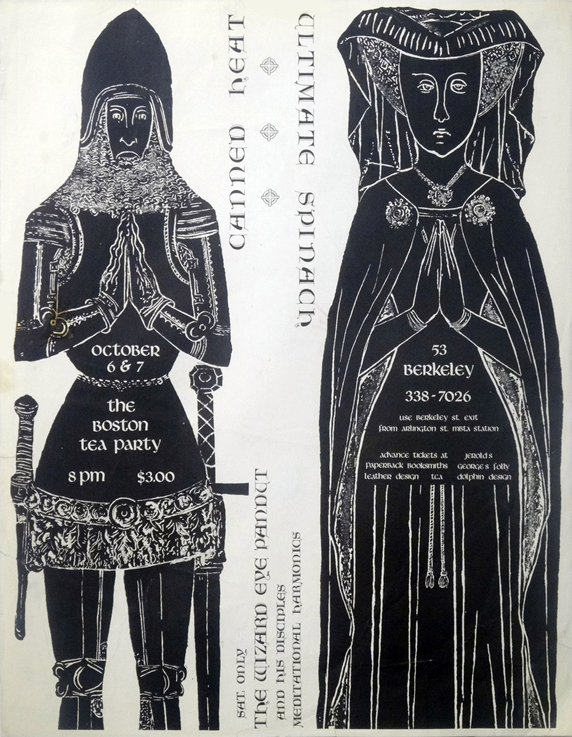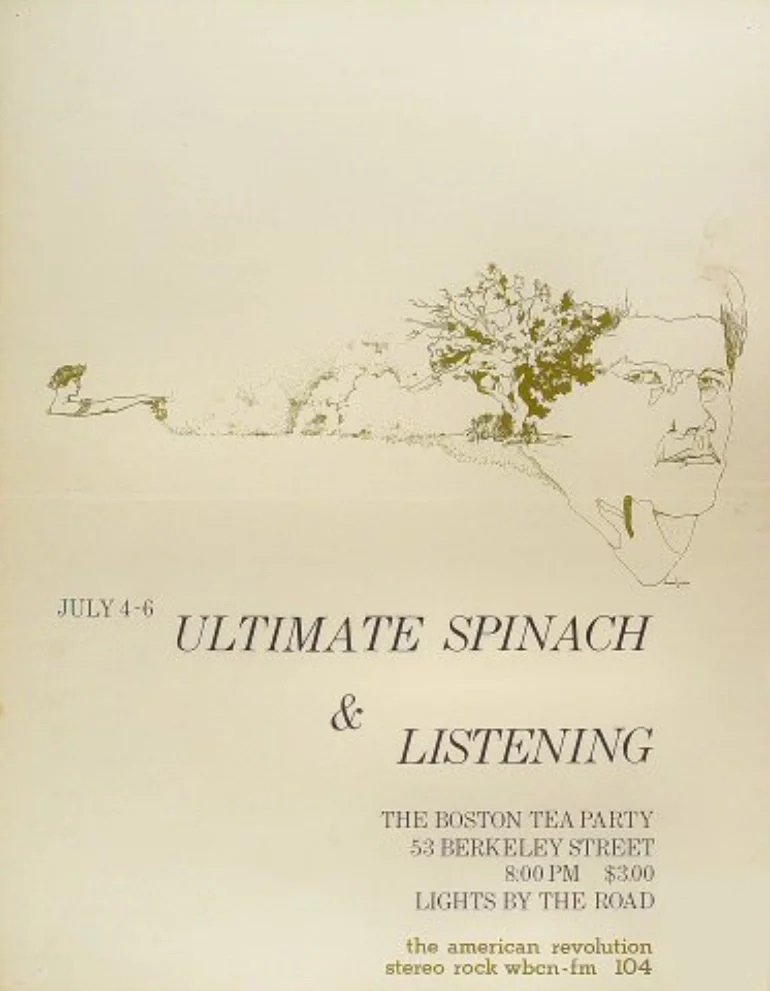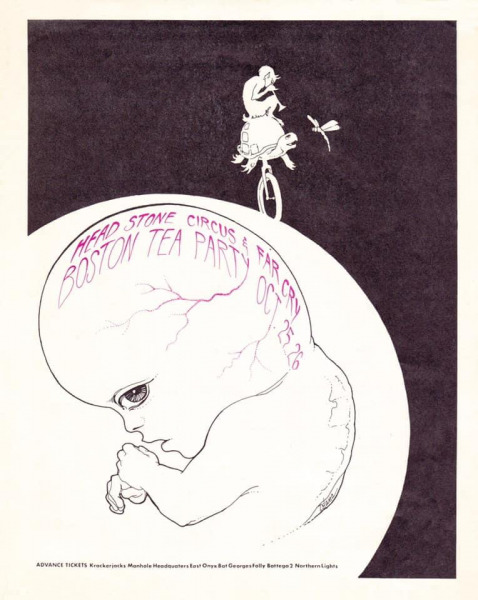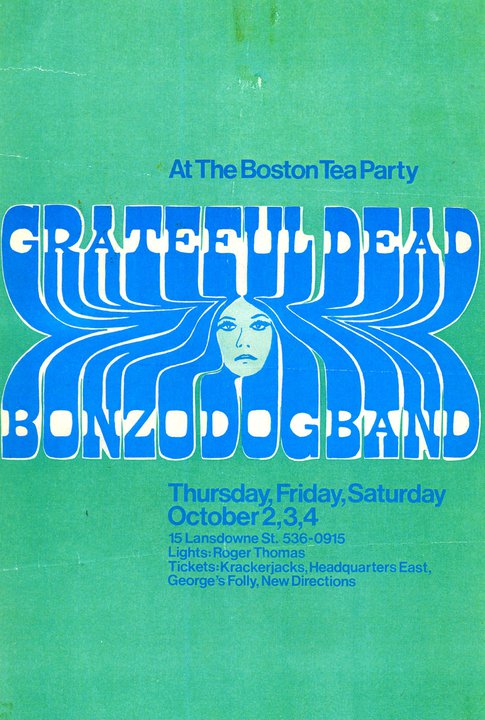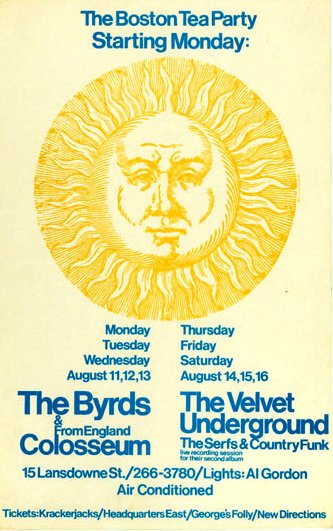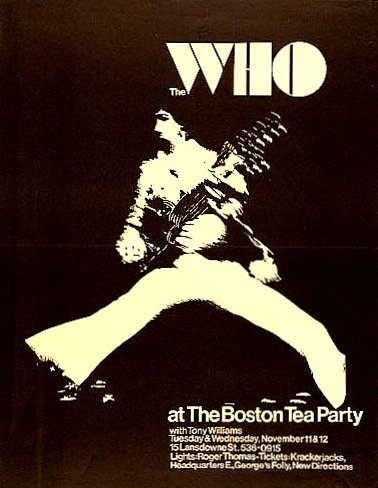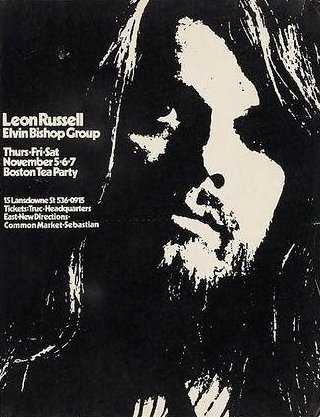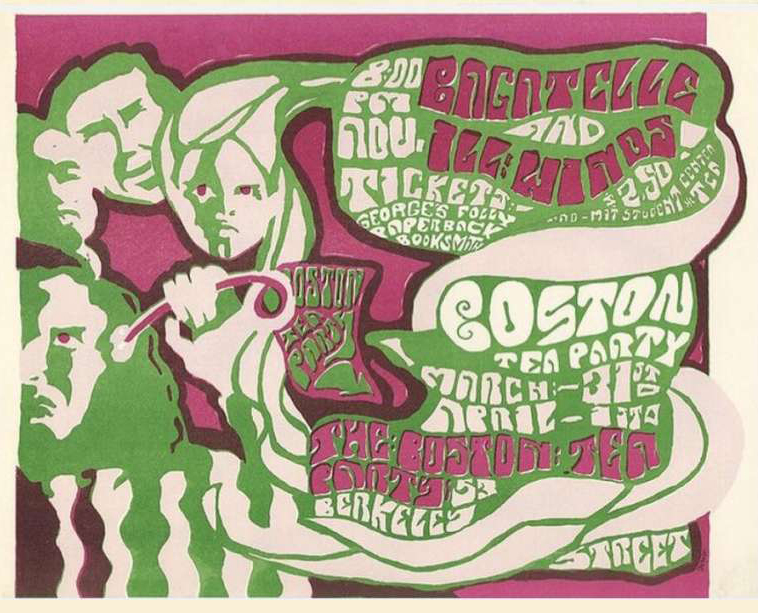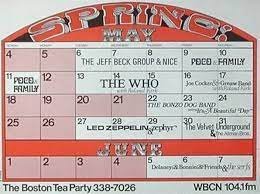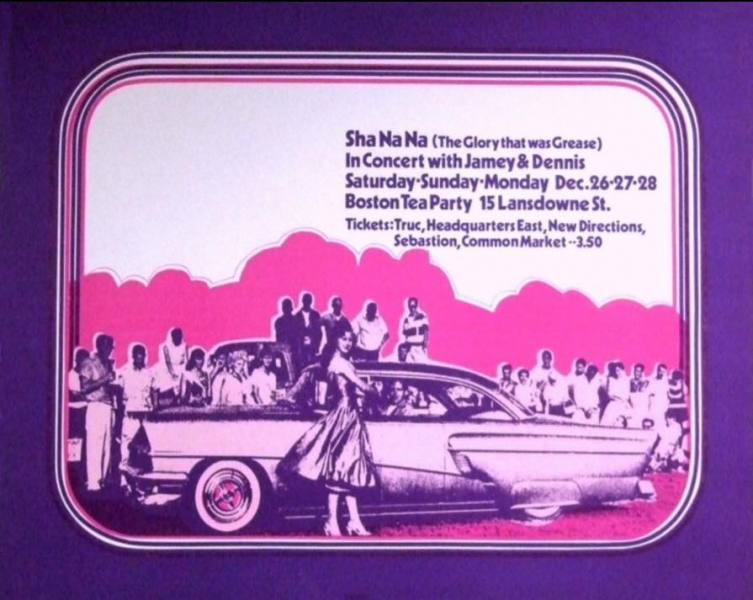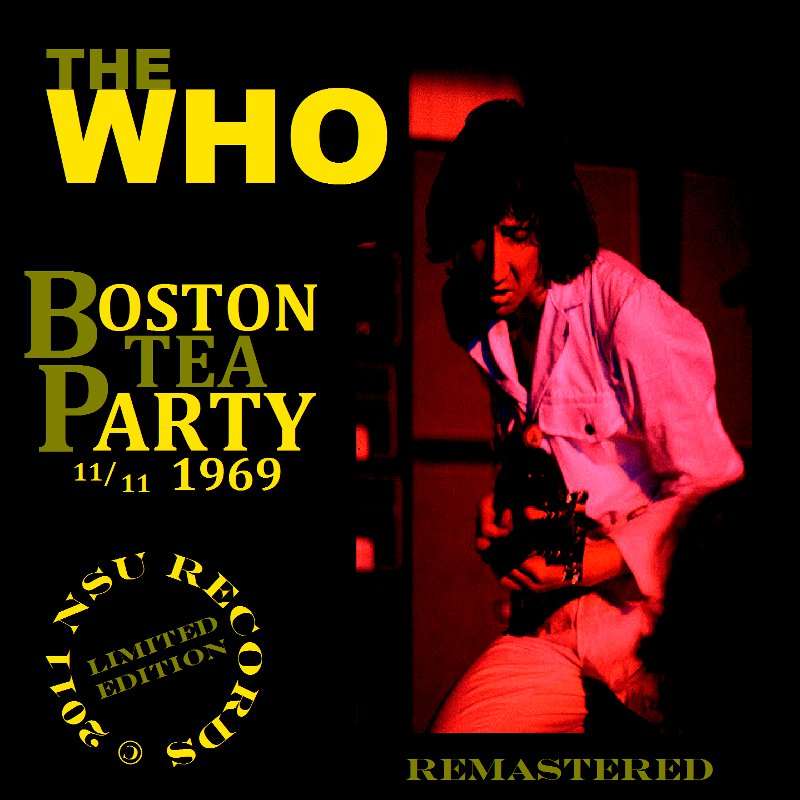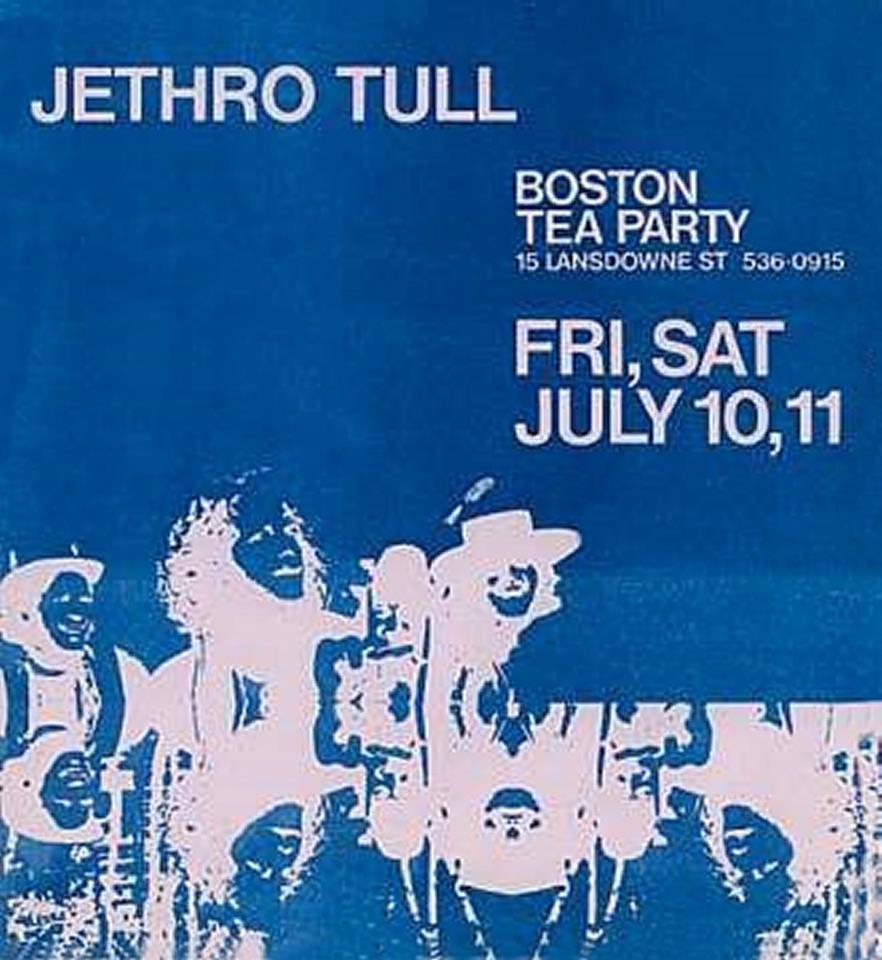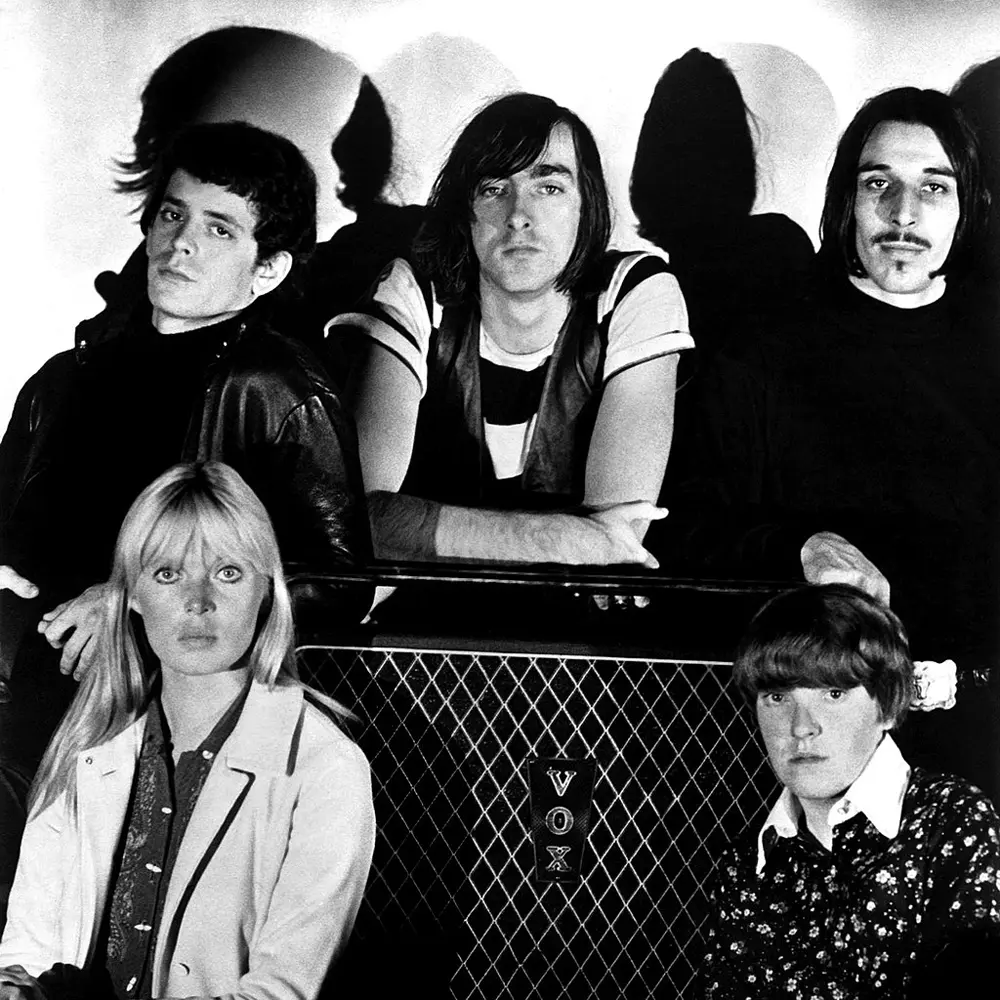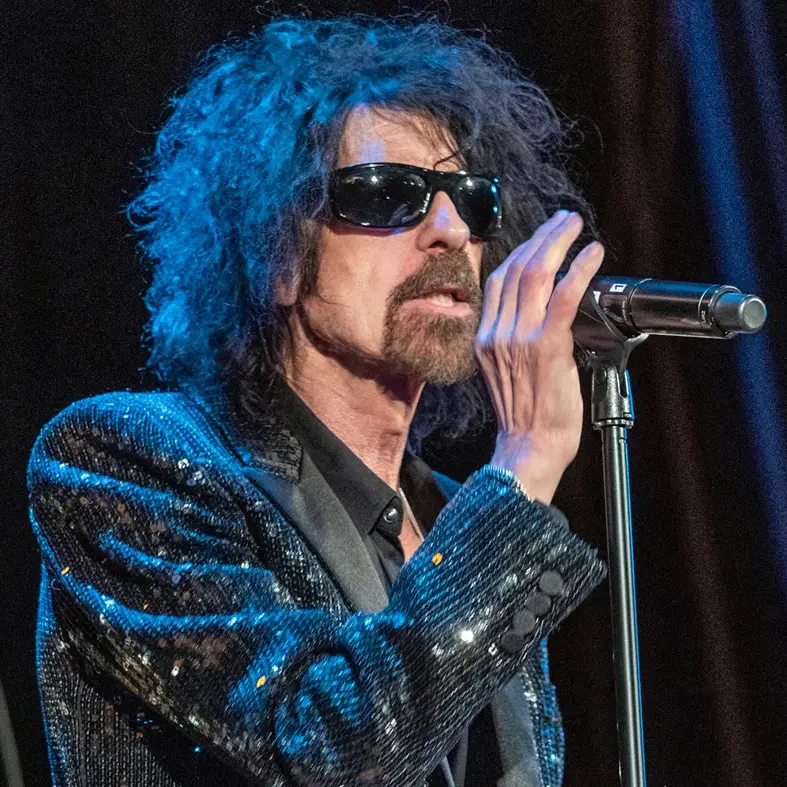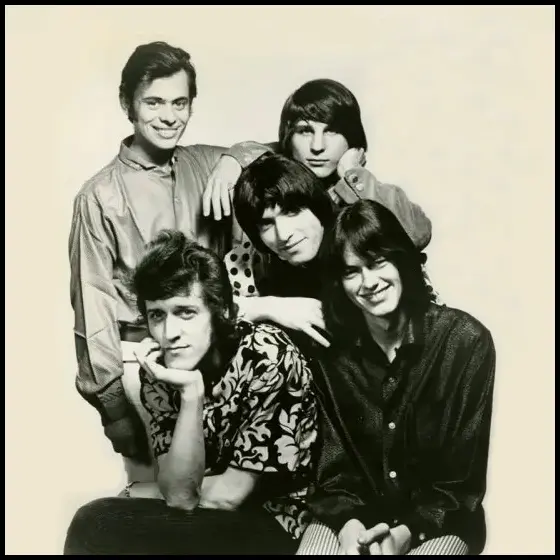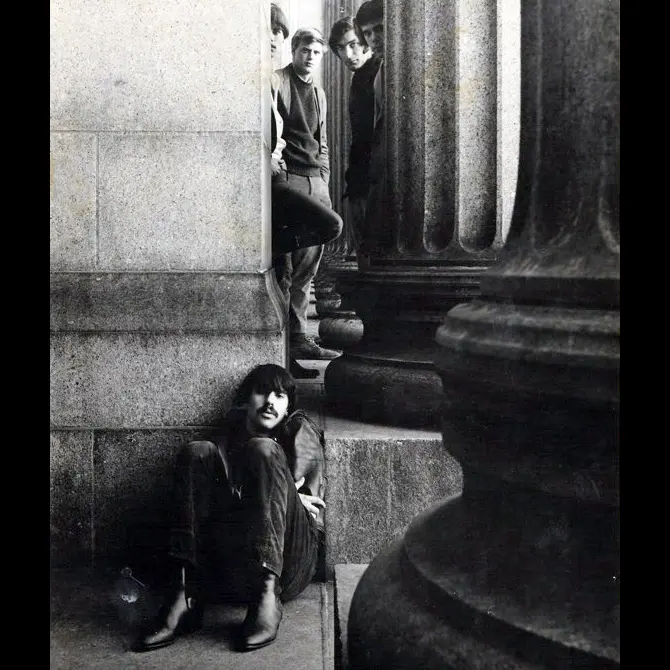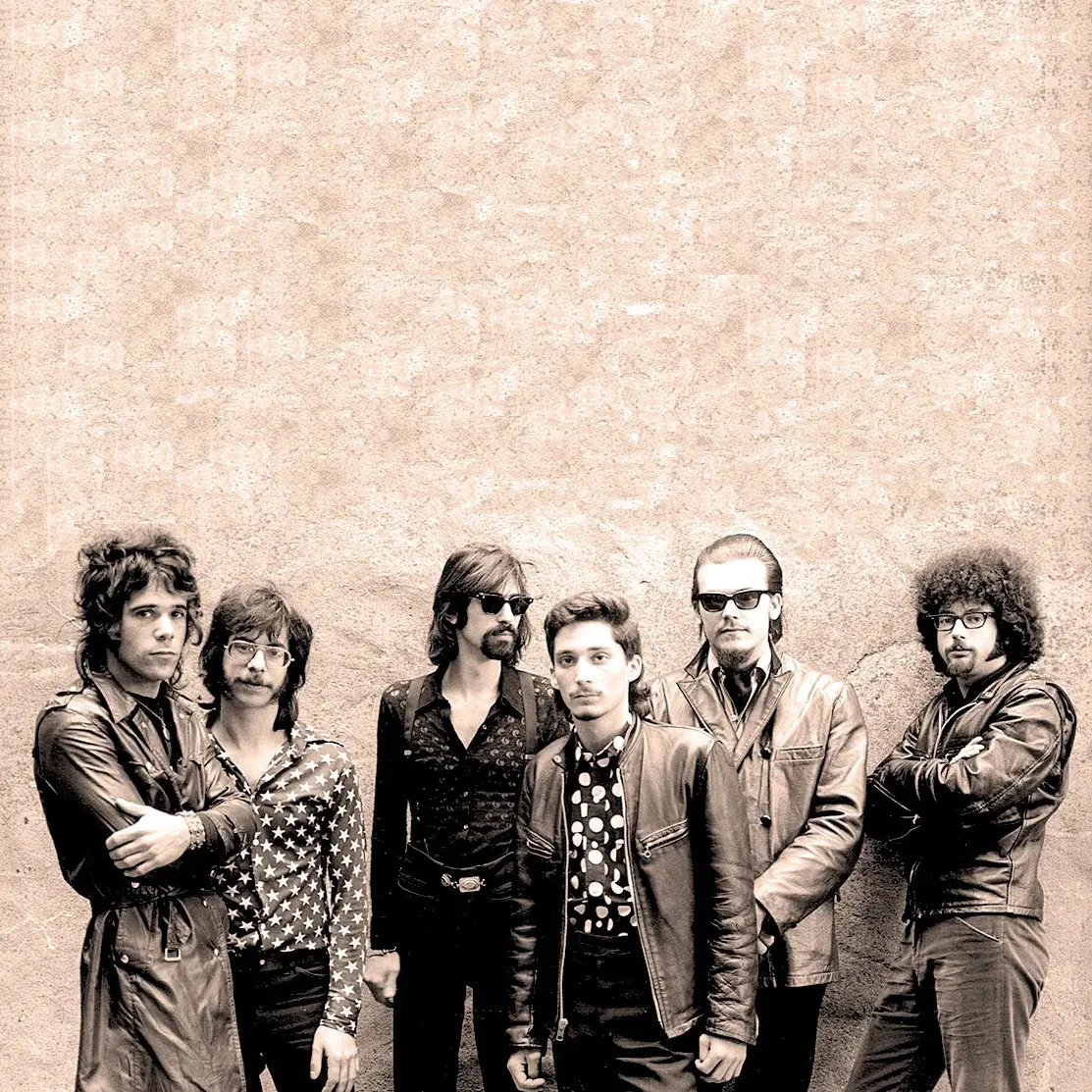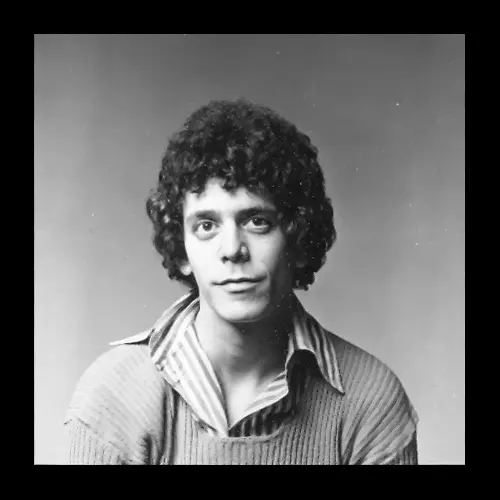The Boston Tea Party
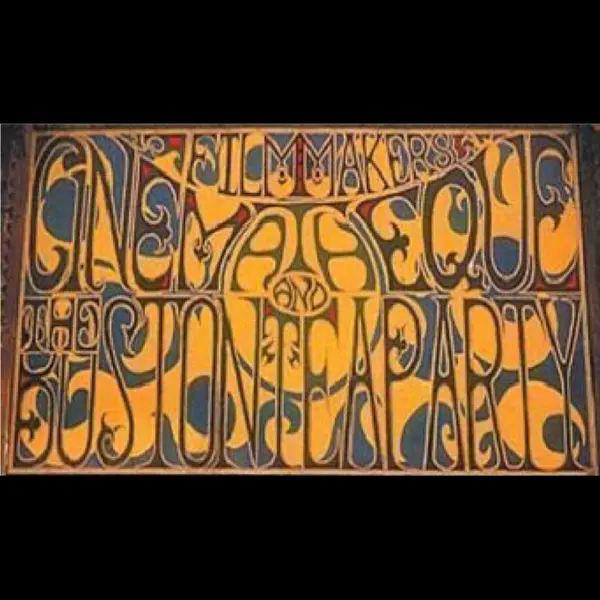
“This is our favorite place to play in the whole country.”
Lou Reed with The Velvet Underground at the Boston Tea Party, December 12, 1968
On January 24, 2007, the Music Museum of New England celebrated the 40th anniversary of The Boston Tea Party’s opening with a gala that included 100 people from the Boston-area music scene celebrating the truly legendary rock ballroom. At the event, The Bostonian Society unveiled an historical marker to be placed at the Tea Party’s original home, the building at 53 Berkeley Street (at the corner of Appleton Street in the South End). The Society had placed over 140 markers at historic sites since 1907, but that was the first time a music venue was so honored.
In addition to the marker, highlights of the ceremony included Don Law’s tales of the Tea Party; the reading of a statement written by Peter Wolf of The Hallucinations and The J. Geils Band, who was unable to attend because he was in a recording session; and the presentation of a generous donation to MMONE by concert memorabilia collector and archivist David Swartz. The “good vibes” evident that day reminded everyone of the atmosphere that made the Tea Party such a unique and special place.
Building history
The Boston Tea Party fist opened its doors on January 20, 1967, in a building constructed in 1872 as a Unitarian meeting house. The land it stood on was donated to the Unitarians by wealthy Boston merchant John Gardner, whose son Jack married famed socialite Isabella Stewart. Her Italian palazzo-style home later became one of Boston’s most renowned and revered museums. In late 1966, the building became home to the Film-Makers’ Cinematheque, which presented “underground” movies by filmmakers including Andy Warhol. To support the film program, the owners introduced a series of weekend “dance concerts” like those that were being held at the Fillmore and Avalon ballrooms in San Francisco.
Opening, Notable appearances
The show on the opening weekend and the following one featured The Lost, which included Willie “Loco” Alexander (playing in his first band), who later became a mainstay of Boston’s punk scene. Then came the Tea Party debut of The Hallucinations, whose frontman Peter Wolf went on to hit records and the cover of Rolling Stone with The J. Geils Band. Shortly after the Tea Party’s opening, film showings ended and the venue began presenting acts from out of town. The Velvet Underground came up from New York City in May ’67 and didn’t perform in the Big Apple again for the next three years, the Tea Party in effect becoming the band’s home club.
The Tea Party also became a favored destination for many top rock and blues artists, and a must-play venue for British acts making their first American tour. The original Jeff Beck Group (featuring then-unknown Rod Stewart and future Rolling Stone Ronnie Wood) appeared in June ’68, Led Zeppelin debuted in January ’69 and B.B. King made his first appearance before a white Boston audience at the venue in April ‘68 after years of performing at Black clubs in the city.
Move to Lansdowne Street
In July ’69, the club relocated to a larger space at 15 Lansdowne Street (now the home of House of Blues) and it closed for good in December ‘70. During its brief existence, the Tea Party showcased and inspired local musicians and was a major catalyst for the rock scene in Boston.
“The two shows I remember where I just sat with my mouth open was that Yardbirds show [in Connecticut which his first band Chain Reaction opened for] and Led Zeppelin at the Boston Tea Party in 1969,” Aerosmith’s Steven Tyler said in an interview with Rolling Stone in April 2005.
“Most people don’t know this, but Fleetwood Mac back in its original form was a kick-ass blues rock band,” Aerosmith bassist Tom Hamilton told the music site Bullz-eye. “Joe [Perry, Aerosmith’s lead guitarist] and I were insane about them when we were teenagers in the ‘60s. We went to see them at least two or three times at this place called The Boston Tea Party, which was this legendary cathedral of the hippy era. It was a local psychedelic trippy San Francisco kinda club which was really happening at the time.”

